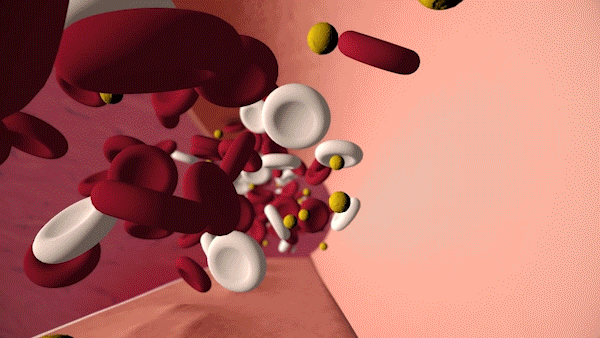September Is National Cholesterol Education Month
Having high cholesterol raises your risk of heart attack and stroke, and because heart disease is the leading cause of death among Americans (strokes are the fourth-most-common cause), learning how to maintain healthy cholesterol levels is a critical part of prioritizing your health.
Cholesterol comes from two key sources: your own body and the foods you eat.
Cholesterol Produced by Your Body
Your liver manufactures blood cholesterol, which helps you digest fatty foods, create hormones and otherwise keep your health in check. Your body produces all of the cholesterol it needs for these actions, and this is why nutritionists and health care providers encourage consuming as little dietary cholesterol as possible.
Cholesterol Found in Foods
Dietary cholesterol comes from your consumption of animal products such as eggs, proteins and dairy products. Limiting your consumption of foods that are high in cholesterol reduces your risk of heart disease and other conditions linked to high cholesterol. While modifying your diet to remove or reduce high-cholesterol foods should lower your heart disease risk, there are other, lifestyle-related factors that also affect heart disease risks.
The Difference Between “Good” & “Bad” Cholesterol

Image Credit: CDC
Contrary to popular belief, not all cholesterol is bad for you. There are two types of cholesterol: low-density lipoprotein, or LDL, and high-density protein, or HDL. You may hear nutritionists, doctors and others refer to LDL cholesterol as “bad” cholesterol and HDL as “good” cholesterol.
“Bad” Cholesterol
Having too much LDL cholesterol in your body can lead to a variety of potentially serious health problems. When you have too much LDL cholesterol in your system, it may collect and line the walls of your blood vessels. This causes your blood vessels to narrow, which can slow the blood’s ability to flow to and from your heart and other internal organs. When something prevents the blood from flowing to your heart, you may experience, in mild cases, chest pain, and in more severe cases, a heart attack.
“Good” Cholesterol
Good, or HDL, cholesterol absorbs cholesterol before delivering it back to your liver, which then flushes it out of your body. Having high HDL levels within your body may lead to positive health benefits, such as a reduction in your risk of stroke and heart disease.
Preventing & Treating High Cholesterol
Talk to your doctor about having your cholesterol tested. Discuss, too, what actions you might take to help prevent or reduce high cholesterol. Preventative actions might include:
- Quitting smoking and reducing alcohol consumption
- Lowering your blood pressure
- Reducing your consumption of high-cholesterol foods (in particular, reduce your consumption of saturated fats and trans fats)
- Maintaining a heart-healthy diet
- Exercising more to encourage weight loss
Understanding your cholesterol levels and risk factors and what you might do to reduce them helps you keep your cholesterol numbers in a healthy range. While some cholesterol is good, too much can lead to clogged arteries, heart disease and a host of other health problems. The good news is, lifestyle interventions can work wonders in terms of reducing your cholesterol-related health risks.






